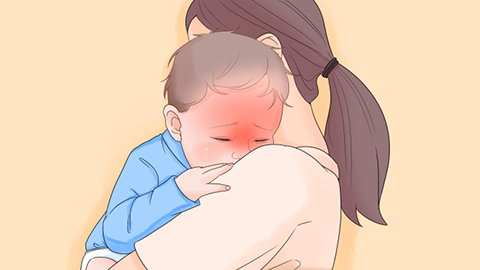What causes a 9-month-old baby to catch a cold, and what should be done?
Generally, a 9-month-old baby catching a cold may be related to factors such as an underdeveloped immune system, temperature changes, improper care, upper respiratory tract infections, or allergic rhinitis. It is recommended to seek timely medical attention and follow the doctor's guidance for treatments such as general care or medication. Detailed explanations are as follows:

1. Underdeveloped Immune System
A 9-month-old baby's immune system is not yet fully mature, making the baby more susceptible to pathogens and cold viruses. It is recommended to keep the indoor air fresh and avoid contact with individuals who have colds.
2. Temperature Changes
A baby's body temperature regulation center is not yet fully developed, making it difficult to adapt to temperature fluctuations. Sudden temperature changes may cause a baby to catch a cold due to exposure to cold. It is recommended to adjust the baby's clothing according to temperature changes and avoid prolonged exposure to cold or environments with significant temperature differences.
3. Improper Care
If a baby's sweat-drenched clothes are not changed promptly or the baby is not dried quickly after bathing, it may lead to catching a chill and developing a cold. It is recommended to enhance the baby's daily care, promptly change clothes, and avoid getting chilled.
4. Upper Respiratory Tract Infection
Upper respiratory tract infections are usually caused by viral or bacterial infections. Viruses or bacteria invading the baby's respiratory tract can cause nasal and pharyngeal mucosal congestion and swelling, leading to symptoms such as nasal congestion, runny nose, and cough. These are often accompanied by sore throat, poor appetite, and listlessness. Treatments may include medications like compound paracetamol and amantadine tablets, azithromycin tablets, and isatis root granules, as directed by a physician.
5. Allergic Rhinitis
Allergic rhinitis is typically triggered by allergens such as dust mites and pollen. These allergens irritate the baby's nasal mucosa, causing increased nasal secretions and symptoms such as nasal congestion, runny nose, and sneezing, which may be mistaken for a cold. Symptoms often include itchy eyes, coughing, and rashes. Treatment may involve medications such as azelastine fluticasone nasal spray, budesonide nasal spray, and triamcinolone acetonide cream, as directed by a physician.
In daily life, it is important to regularly open windows for ventilation, maintain fresh indoor air, reduce the growth of bacteria and viruses, identify the baby's allergens, and avoid contact as much as possible to safeguard the baby's health.







